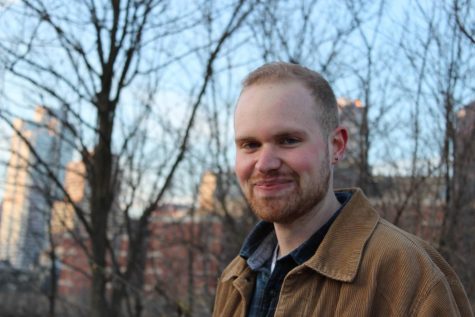Australian fires are just the beginning
If you haven’t heard of the devastating wildfires that have been plaguing the continent of Australia, you have probably been living in a bubble. Though the fires have been burning since early July, media coverage of the tragic loss of at least 28 lives and millions of flora and fauna has exploded in recent weeks, with politicians and celebrities urging donations to help those affected by the fires.
According to BBC News, about 10 million hectares have burned across Australia. New South Wales has been hardest hit, with 5 million hectares gone and 2,000 homes destroyed. Walter Jetz, professor of ecology and evolutionary biology at Yale University, stated that at least six species including birds, frogs and fish experienced habitat loss of between 50-100%.
Some climate deniers like the president of the United States think that meticulously raking underbrush will prevent wildfires. Rupert Darwall, in an op-ed published in The Hill, thinks that land management is solely to blame for these tremendous wildfires and that worrying about climate change is a distraction. It is well-known that climate change creates a hotter and drier climate in already dry areas like California and Australia. Hot, dry conditions are the perfect recipe for wildfires to roar and devastate an ecosystem.
The Australian wildfires must serve as a wake-up call to governments to enact quick and sweeping environmental legislation. Climate change will cause more frequent and severe wildfires and increased flooding, as we’ve seen in recent years in Western Pennsylvania.
The effects of these irregular weather patterns will have dire consequences: a myriad of people living in coastal regions will be forced to migrate due to sea-level rise. Something climate deniers should be asking: what will be the effect of millions of displaced populations around the globe? While some are worried about caravans coming to the U.S.-Mexico border, how about 143 million people seeking refuge from the effects of climate change, according to a 2018 World Bank estimate. In contrast, approximately 11 million Syrians emigrated from their home country after 2011.
But why aren’t Americans more alarmed about this? Perhaps it’s because they don’t even know about it.
The media’s lack of climate coverage is nothing new. Political controversies including the ongoing impeachment trial of Donald Trump constantly dominate the news cycle. It seems to take a 16-year-old from Sweden, or the toxicity of debate surrounding the Green New Deal, to get any sort of coverage of climate change.
Thus, the largest issue getting people to support climate mitigation is the hyper-politicized nature of words like “carbon,” “warming” and “coal.” Climate change isn’t political. It’s personal.
More people will die and lose their way of life as a result of rising temperatures. So, it’s understandable that people are hesitant to believe the “doom and gloom” nature of environmental politics. And if they do buy it, it’s hard to get out of the psychology of despair or learned hopelessness.
That’s not the approach we need. We need to garner widespread media coverage of youth, like those involved with the Sunrise Movement. This will help educate the public about the problem, but more importantly, the solutions and ideas that will propel society into an economically and environmentally sustainable era.
Much like the coverage of mass shootings, which relies on tragedy to strike first and a reactionary response from social media, climate disasters seem to follow the same pattern. While it is of utmost importance that people help Australian victim of the wildfires, why don’t we talk about how the fires are not surprising? We must end the cycle of tragedy, an outraged reaction and then no further action.
Nothing perpetuates nothing.
No action perpetuates the status quo. The status quo is becoming that people across the globe lose their livelihoods and their lives in exchange for short-term economic growth. The solution is not thoughts and prayers. The solution is a well-thought-out policy that will equally benefit our economy, health and environment.
Instead of donating a measly $690,000 to help Australians, perhaps the multi-billion dollar Amazon corporation could reduce climate impacts in its global supply chain. Instead of suggesting that “poor land management” is to blame for fires, we must re-examine our management of unceasingly pumping heat-trapping gases into the atmosphere. We must be able to communicate with those who don’t understand the magnitude of the threats that are before us. We must be able to speak in a non-condescending way which is relatable to evoke a personal response to the environment.
Because, if we don’t, you’d better believe that the Australian wildfires are only the beginning of what catastrophes are to come.

Ethan Woodfill is a senior from Pittsburgh, Pennsylvania. He is an Environmental Science & Sustainability and Political Science double major with an...





